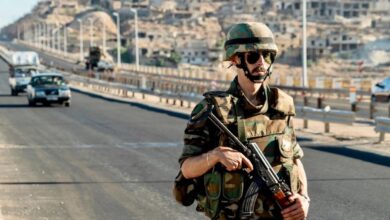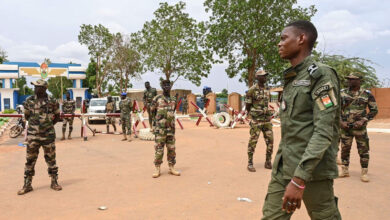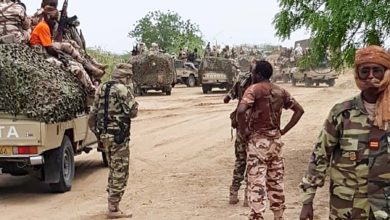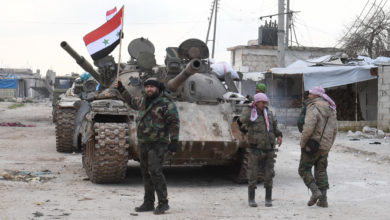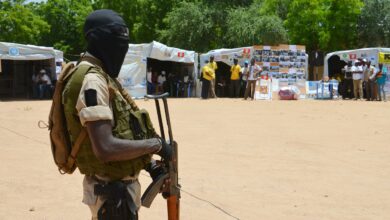SDF unable to secure ISIS prisons in Syria if Turkey attacks
The U.S. decision to clear the way for a Turkish invasion of northern Syria will jeopardize security at the prisons holding tens of thousands of suspected Islamic State members, the Syrian Democratic Forces said.
“The security situation in north and east Syria is going to be severely compromised by any Turkish attack or invasion,” SDF spokesperson Kino Gabriel told The Defense Post on Monday after the White House said it would pull back troops from the border area.
“We would not be able to secure those [detention] facilities,” he said.
Late on Sunday, the U.S. announced its troops would not get in the way of Turkey’s long-planned incursion into the part of Syria controlled by the American-allied forces who fought to defeat ISIS in Syria.
The alliance of mostly Kuridsh fighters is now working alongside U.S. troops to clear the last remnants of ISIS in northern Syria.
The SDF also manages the various ISIS detention facilities, including the notorious al-Hol camp.
Sprawling al-Hol houses more than 70,000 people, most of them women and children captured fleeing the last remaining ISIS stronghold of Baghouz in March. More than half of the camps’ inhabitants are children.
In September, ISIS released an audio recording of the group’s elusive leader Abu Bakr al-Baghdadi, in which he called on his followers to free supporters “suffering in the camps of diaspora and the prisons of humiliation under the power of the Crusaders.”
Last month saw increased reports of violence in al-Hol, including reports of a shootout in the camp.
Baghdadi’s message followed a Pentagon Inspector General report released in August that warned U.S. forces were unable to adequately monitor al-Hol as a result of the drawdown of American forces. Minimal security at the camp, the report said, has allowed the “uncontested conditions to spread of ISIS ideology” there.
As American forces scale back, the U.S. has been seeking additional troop contributions from other member states in the Coalition. So far, Denmark has boosted its military contributions to include a 14-member medical team in Syria.
Asked about the role of the U.S. Coalition going forward in northern Syria, a State Department official told The Defense Post, “we would refer you to the White House statement and POTUS tweets.”
On Monday morning, Trump tweeted that Turkey, the Kurds and international community “will now have to figure the situation out,” and echoed the White House statement that Turkey would now “take custody” of ISIS fighters captured in the area over the last two years.
The Department of Defense said it does not endorse Turkey’s planned operation and stressed that Turkey and other countries will be responsible for the security of imprisoned ISIS members.
Gabriel, the SDF spokesperson, accused Turkey of previously turning a blind eye to jihadist fighters and cast doubt on Turkey’s ability to maintain security at al-Hol and other detention centers.
“We have witnessed and seen the amount of support and facilitation that has been provided for ISIS members or other terrorists either through their movement or providing the supplies for them,” Gabriel said.
Turkey long denied allowing ISIS militants to slip across its border into Syria. Ankara considers the predominantly-Kurdish Syrian People’s Protection Units (YPG), the backbone of the SDF, to be a terrorist organization inextricably linked to the Kurdistan Workers’ Party (PKK), which has waged a decades-long insurgency against the Turkish government.
Erdogan on Monday said Turkey could no longer tolerate the threat of “terrorists” at its border.
Brett McGurk, who resigned last year as Trump’s special envoy to the U.S. Coalition, also questioned whether Turkey could keep security under control.
“Turkey has neither the intent, desire, nor capacity to manage 60,000 detainee in al-Hol camp,” McGurk said on Twitter. “Believing otherwise is a reckless gamble with our national security.”





